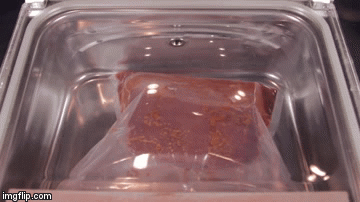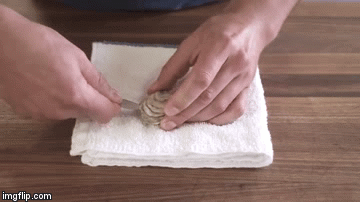For a month this summer I had the privilege of staging (the culinary term for interning) at Chuck Hughes‘ restaurant Garde Manger. Words truly cannot describe how amazing the experience was. In my month at Garde I got to work with some phenomenal people, learn about day prep and working the line, as well as the ins and outs of how a restaurant in Montreal is able to successfully stay open for a decade.
Of course with every first stage in a restaurant, there was definitely a huge learning curve to overcome. To be honest, I came into it expecting the worst, most gruelling month humanly imaginable. It definitely wasn’t easy, but the pros far outweighed the cons. Here are some of the things I learned along the way that I thought I would share, along with some fond memories I now have to look back upon.
1. Don’t Take Yourself Too Seriously, You WILL Mess Up.

gif courtesy of giphy.com
In fact, it’s a good day if you only mess up once or twice. Face it, you’re new to the industry. No one is perfect on day one, and no one expects you to be. If you mess up, accept it, and don’t do it again next time.
One such example is when I accidentally took a pan with old bay infused browned butter to the dish washer because I thought it was a dirty pan that was no longer being used.
2. There is an Easier Method to Straining 100 Litres of Stock Than With a Ladle.
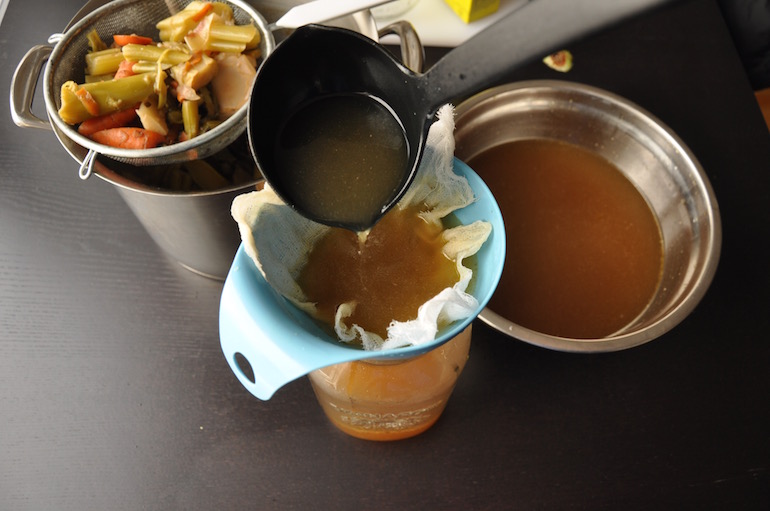
Photo by Helena Lin
Oh how I must have looked like an idiot on my first day…
I was asked by the executive chef to strain a gargantuan pot of pea pod stock into containers. Me, being the inexperienced noob I am, proceeded to grab the biggest ladle I could find to strain this stock. 20 minutes later, stock strained. The next day, I saw one of the line cooks take a tube, fill it with water, and shove one end into the bottom of a large stock pot and one end into the container. 1 minute later, stock strained.
#SpoonTip: Use a plastic tube to strain large pots of stock. Just saying.
3. The Mandolin is Your Best Friend and Worst Enemy
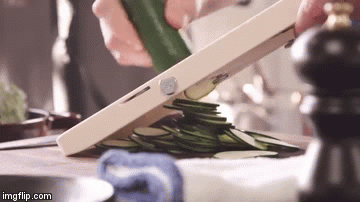
gif courtesy of chefsteps on youtube.com
In my month at Garde I probably cut myself a good 5 times on the mandolin… I can’t deny that this tool is the best for slicing radishes paper thin, cutting sweet potato into a very fine julienne, and prepping your carrots to be brunoised. However, it is also sharp AF, so fingers be weary.
4. Keep a Close Eye on The Vacuum Sealer
When vacuum sealing anything that contains a liquid be very careful. As chemistry and experience has taught me, as pressure builds in a plastic bag, liquids boil at a lower temperature, which means sometimes liquids explode out of said bags before you can seal them shut…
It was not fun cleaning whipped caramelized butter out of the vacuum sealer, so don’t make the same mistake I did.
5. Keep Your Herbs Cold
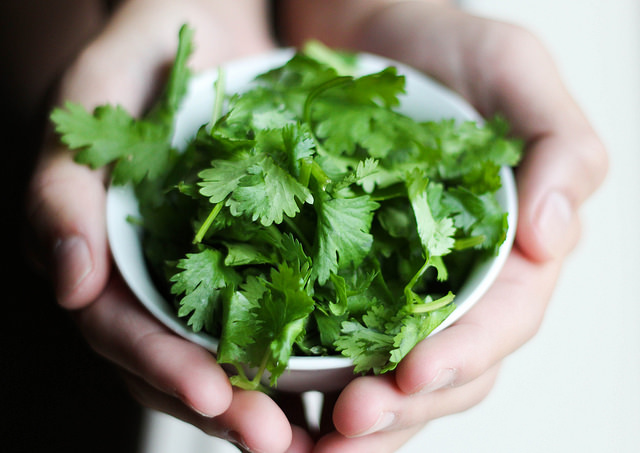
Photo by Gabby Phi
Shout out to the sous chef Devon for teaching me this beautiful trick! When you have to thinly slice 1/2 litre of chives every day, it’s important to keep the chives in the fridge. This allows them to be more rigid and your knife to cut through them more easily.
#SpoonTip: Same goes for all herbs.
6. Embrace Prep Work

gif courtesy of giphy.com
There were definitely days when I thought I would die of boredom from burnoising 2 litres of carrots and 2 litres of celery down in the prep kitchen (aka the dungeon) as service was going on. However, the time you get to practice your knife skills is invaluable so take advantage of it.
Now that I am back at culinary school, I have never been so happy to see brunoise carrots, celery and onions on my recipe because i know that I can cut them to near perfection.
7. Observation is Key
When working in the kitchen, it is SO important to watch what others are doing. The best way to learn is by watching other people in the kitchen. How do they brunoise onions, break down lobsters, cut beef tenderloin?
8. Figure Out What Works Best For You

gif courtesy of giphy.com
Let’s face it, everyone in the kitchen is going to have a different way of doing things. Some will use their pairing knife to cut shallots, others will use their chefs knife. After observing various people in the kitchen, what is important is for you to find a technique that works for you.
9. Listen to Everyone
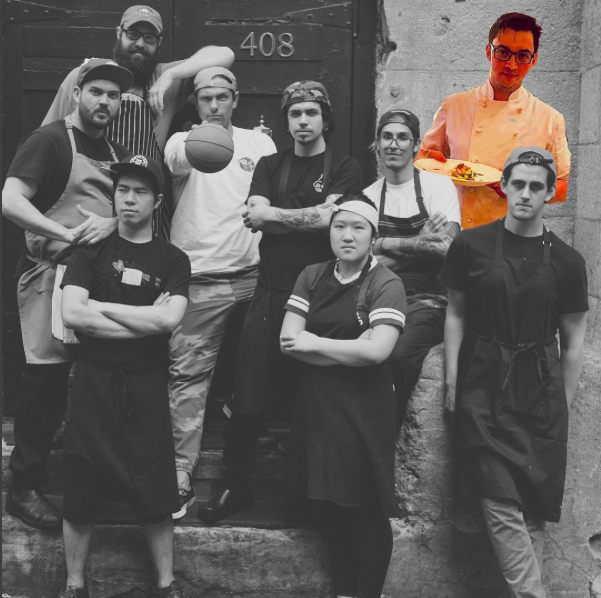
Photo courtesy of @chefchuckhughes on Instagram
As a stagiere or intern, you are the lowest possible totem on the totem pole. What does that mean? You have to listen to everyone. I mean, regardless you should because everyone has more experience than you and has important knowledge to teach you. However, there will always be someone you don’t like and you just have to suck it up and listen to them too.
10. Don’t Mess with the Chips
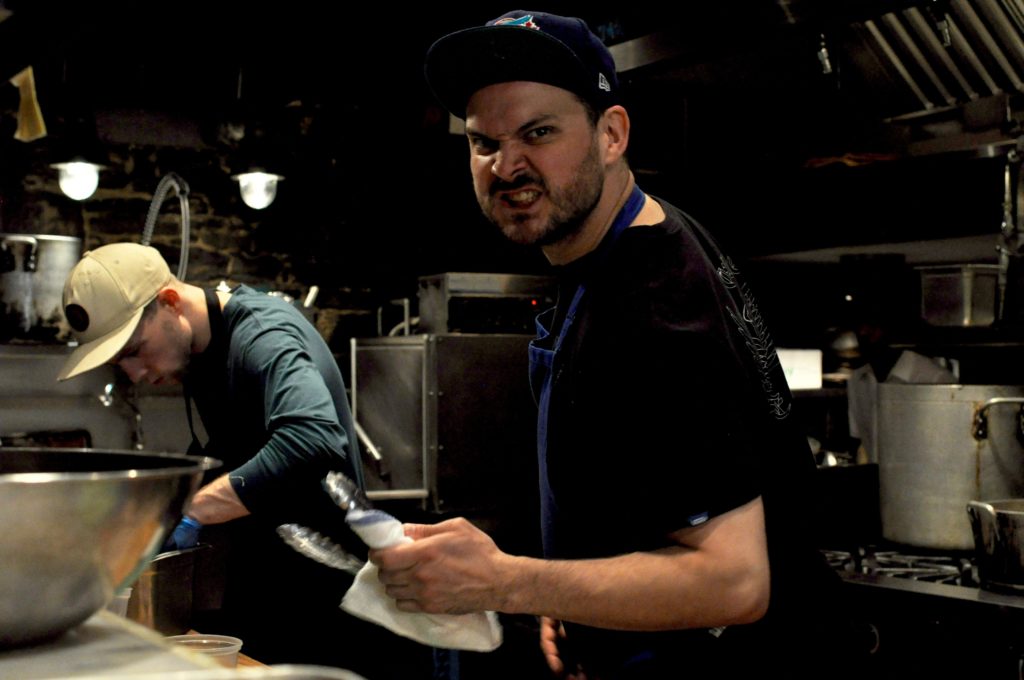
Photo by Helena Lin
Not potato chips, but order chips. As a stagiere try to refrain from touching the chips or calling orders unless you are allowed to. The kitchen gets crazy enough during service without inexperienced hands on order chips. The worst thing that can happen is for an order not to be made.
11. Speak Loudly

gif courtesy of giphy.com
You may be inexperienced and you may have no idea what you are doing, but there is such a thing as fake it till you make it. The kitchen is a loud place and you need to speak up to be heard, especially if you have been allowed to call orders.
12. Keep Your Station Clean

gif courtesy of giphy.com
This seems pretty self explanatory, however it can be overlooked when service gets busy. Always, always keep your station clean. This means constantly wiping down the counter you are working at, as well as sweeping the floor of the kitchen during service.
13. Come to Work on Time

gif courtesy of giphy.com
You may not be getting paid but a good work ethic is of the utmost importance. That means coming on time as well. Don’t forget, a stage can open a lot of doors when you work for real.
14. Get a Good Pair of Chef’s Shoes
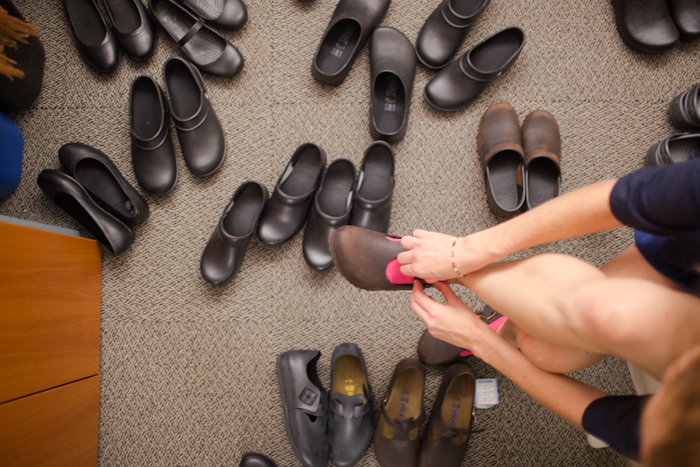
Photo courtesy of bonappetit.com
When you aren’t used to standing for 10+ hours a day, it is definitely quite the adjustment. I was definitely grateful I splurged to buy shoes with Birkenstock inserts. Grant it, my feet were still in pain at the end of the day, but not nearly as much as they could have been.
Check out this article for insight on which shoes are best for working long hours in the kitchen.
15. Have Fun
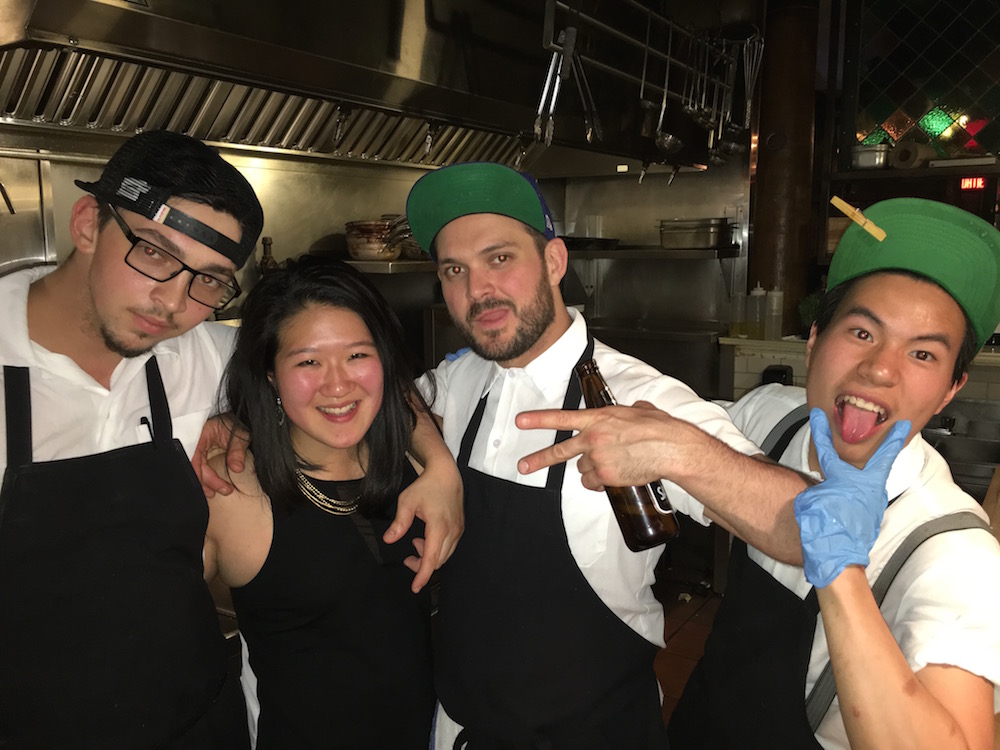
Photo by Helena Lin
A stage can be intense at times, especially on busy nights during service, but Hey! You are staging at a restaurant because you love food, are passionate about food, and want to make your passion your career, so have fun doing it. When you have fun at work, it becomes play, and it doesn’t get much better than that.
What Are You Waiting For?
So, what are you waiting for? Do you think you want to pursue food as a career? Go for it, you won’t know if you are made to cook in a kitchen, work for a food publication, take #foodporn photography unless you try it.


